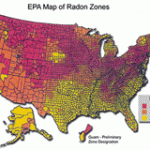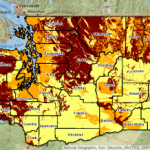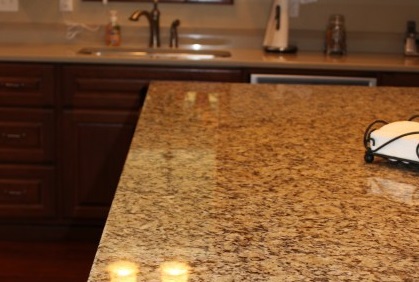THIS INFORMATION IS PROVIDED AS A COURTESY. THE HOME INSPECTION WILL NOT TEST FOR RADON OR OTHER ENVIRONMENTAL HAZARDS.
WHAT IS RADON?
Radon is a colorless and odorless radioactive gas that occurs naturally in soil, rocks, and even some building materials like concrete or granite slabs. Excessive exposure to radon decay products is a significant cause of lung cancer in areas throughout the world. Radon can pass through and enter the home through walls, basements, crawlspaces, and most building materials.
Radon exists nearly everywhere on the planet. The concentration of radon levels varies significantly based on location. Keep in mind that it’s the elevated exposure that we are concerned about. You can think of radon somewhat like UV exposure from the sun; limited amounts are acceptable but elevated exposure can significantly increase health risks.
SHOULD I TEST FOR RADON?
Fortunately, the majority of the Pacific Northwest is in an area of relatively low concern as compared with surrounding areas and much of the country. Isolated hot spots can still be present and the EPA does recommend testing every home for elevated levels of radon, even in regions of low concern. Professional testing of Seattle area homes before closing is uncommon and testing is not performed as part of a standard home inspection. You can easily spend thousands of dollars in additional environmental, geological, and chemical assessments before even purchasing a home. If there is no outstanding reason to believe radon levels are high in the area or home that you are considering, I generally recommend doing an approved passive test after closing (listed in the paragraph below). While this does mean that high levels of radon may be present and abatement may be necessary after purchasing a home, the risk is particularly low.
AREAS OF CONCERN
King County and many surrounding counties have a relatively low “potential for elevated indoor radon levels” as defined by the EPA. The EPA has provided a map of all the counties in the US and classified each as 1 of 3 zones. While King County falls in an area of low potential, isolated hot spots can exist in any zone. The EPA recommends supplementing their information with local data, so I have provided 2014 findings of the Washington State Department of Health. Be sure to check out both maps provided below.
You can find the original EPA map and related info here.
You can find the 2014 updated Washington Dept of Health Map by clicking the green “SUBMIT” button on the left at the link here.
There’s little evidence suggesting that granite countertops actually pose any significant radon concern. For the scoop about radon emission from granite and stone countertops, check out this article in This Old House
HOW TO TEST FOR RADON
There are two primary testing options:
Home test kits are available from reputable online retailers such as Amazon.com, Walmart.com, etc. These kits consists of a small charcoal canister that is placed in the home (usually on the lowest level) for period of time, then sent immediately to a lab for analysis. These passive test kits are available in “short term” (2-90 day) and “long-term” (6-12 month) options. Long term test kits typically offer more reliable results.
Professional testing by a licensed radon professional typically involves the use of system that continuously monitors radon levels for a period of time. Although more expensive, professional testing is the preferred method and can usually be done in a shorter time than passive do-it-yourself testing.
WHAT’S THE FIX?
Homes that are found to have elevated levels of radon can be fully repaired to prevent the gas from accumulating within the home. The most common solution is to add a special fan that pulls air from beneath the house and exhausts to the exterior. Remediation techniques vary, so any home that is determined to have elevated levels of radon should be reviewed by a qualified licensed professional to determine all available options.
RADON TESTING & SERVICE PROVIDERS
Bothell, WA
Patrick Thomas Moore
SRL International Inc.
pmoore@slrconsulting.com
(206) 478-6464
Renton, WA
Rich Davis
Surveys Inc.
http://www.surveysinc.net/environmental.html
richd@surveysinc.net
(206) 281-1260
The National Radon Proficiency Program (NRPP) certifies Radon Testing Professionals. You can find a list of those service providers here.
NEWS AND INFO
King 5 Channel Video
http://www.king5.com/story/tech/science/environment/2014/08/05/13377568/
A Citizen’s Guide to Radon
(EPA) http://www.epa.gov/radon/pubs/citguide.html#overview
EPA radon map
http://www.epa.gov/radon/zonemap.html
Washington State Dept of Health
http://www.doh.wa.gov/CommunityandEnvironment/Contaminants/Radon
Air Chek, Inc (company)
http://www.radon.com
Kansas State University (National Radon Program Services)
http://sosradon.org/node/120
World Health Organization
http://www.who.int/ionizing_radiation/env/radon/en/
Please note that the information and resources provided here are intended only as a courtesy by Wil Harnecker and HAUS Inspection Services, LLC.. This information is not intended for use in making real-estate or other financial or health related decisions. Further research and due diligence is always recommended during all steps of the home buying and selling processes.



